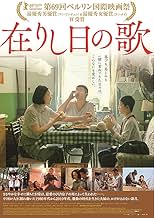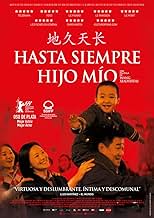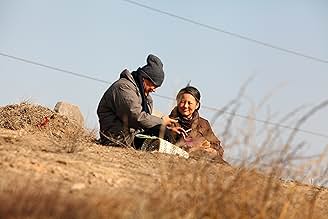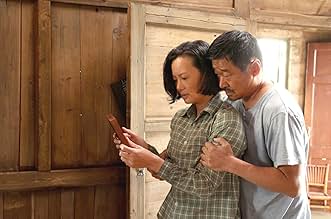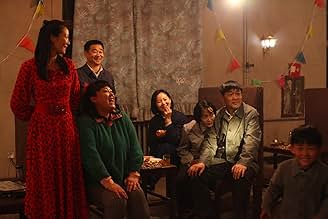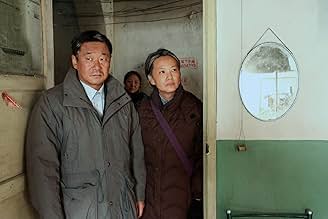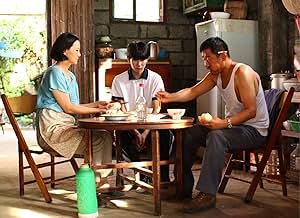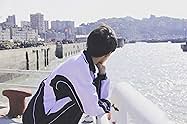Di jiu tian chang
- 2019
- 3 h 5 min
AVALIAÇÃO DA IMDb
7,7/10
5,9 mil
SUA AVALIAÇÃO
Dois casais estão se adaptando às grandes mudanças sociais e econômicas que estão ocorrendo na China dos anos 80 até o presente.Dois casais estão se adaptando às grandes mudanças sociais e econômicas que estão ocorrendo na China dos anos 80 até o presente.Dois casais estão se adaptando às grandes mudanças sociais e econômicas que estão ocorrendo na China dos anos 80 até o presente.
- Direção
- Roteiristas
- Artistas
- Prêmios
- 43 vitórias e 60 indicações no total
Yanguozhang Zhao
- Xinjian Zhang
- (as Yangouzhang Zhao)
- Direção
- Roteiristas
- Elenco e equipe completos
- Produção, bilheteria e muito mais no IMDbPro
Avaliações em destaque
Set against a background of political and social change in China, it follows the life of the married "Yaojun" (Jingchun Wang) and "Liyun" (Mei Yong). They are contented enough until a tragedy disheartens them thoroughly and they move to a more urban existence which doesn't really suit anyone. It's especially problematic for their adopted son "Liu" (Roy Wang) who takes recalcitrance to an whole new level and just walks out on them one day. Initially concerned for his wellbeing, time elapses and they have to face the immediate difficulties of their own lives - at work and emotionally, before concluding that perhaps they ought to return home. It's a story that constantly moves the stability goalposts for the couple - and though their own love remains steadfast, the pressures put upon them by a society that restricts family numbers then evolves slowly into a market economy that endangers their very livelihood and what prosperity they have worked hard for poses increasing challenges. Eventually, they (and us) begin to realise that perhaps it's grief that is lacking from their life. Grief for their earlier loss(es), for allowing that to fester and inhibit much of the joy of later life - and maybe a resentment of the hand they were dealt by fate. The closing scenes are poignantly reconciliatory and though it looks long on the tin, the slowly developing characterisations are really well presented by two actors who deliver a gently effective chemistry that is palpable - is sometimes exasperating, throughout.
Chinese film 'So Long, my Son' opens with Yaoyun and Liyun, a couple in an industralised town during the 1980s, suffering a great personal tragedy. Some years later they have left their hometown and are living with their son in a port. Some years later still and they are returning for the first time to their hometown in order to see a dying friend. The gaps in-between are filled in by multiple flashbacks, during which we see the human costs of China's environmentally-sensible one-child policy; how the authorities attempt to crush personal expression; and the ramifications of Yaoyun and Liyun's tragedy.
All these flashbacks are difficult to keep track of, especially as they are not in chronological order. So from that aspect this is a film that would probably reward repeated viewing. Certainly I would be happy to see it again; as played by Jingchun Wang and Mei Yong, respectively, Yaoyun and Liyun are a likeable couple. Their circle of friends may be less well-developed, consisting of stock characters such as the fun-loving party girl, the free spirit and the blindly-loyal Party functionary, but they all add colour to the story. I also enjoyed the depiction of China's transformation and development over the two decades covered by the film.
I saw this in the cinema during the 2019 London Film Festival. While I certainly recommend it, I suggest waiting until you can watch it in your own home: at three hours long you will want to be as comfortable as you possibly can be!
All these flashbacks are difficult to keep track of, especially as they are not in chronological order. So from that aspect this is a film that would probably reward repeated viewing. Certainly I would be happy to see it again; as played by Jingchun Wang and Mei Yong, respectively, Yaoyun and Liyun are a likeable couple. Their circle of friends may be less well-developed, consisting of stock characters such as the fun-loving party girl, the free spirit and the blindly-loyal Party functionary, but they all add colour to the story. I also enjoyed the depiction of China's transformation and development over the two decades covered by the film.
I saw this in the cinema during the 2019 London Film Festival. While I certainly recommend it, I suggest waiting until you can watch it in your own home: at three hours long you will want to be as comfortable as you possibly can be!
What a beautiful story about what it means to be a parent in this world and how we are all connected.
The story is told by jumping back and forth in time, a flow of scenes giving the viewer a glimpse of the changes in the life of a couple who lost their son and how they try to move on with this loss. Although they abondon old friends after the incident a connection remains and in the end the lives of this group of people comes full circle.
This film brings the message of everyone being connected to another and the importance to sincerely care about others to the screen in such a wonderful way with an incredible cast. The three hours felt so short but something still remains, just like in life when one is touched by the goodness of others.
Highly recommend this movie.
The story is told by jumping back and forth in time, a flow of scenes giving the viewer a glimpse of the changes in the life of a couple who lost their son and how they try to move on with this loss. Although they abondon old friends after the incident a connection remains and in the end the lives of this group of people comes full circle.
This film brings the message of everyone being connected to another and the importance to sincerely care about others to the screen in such a wonderful way with an incredible cast. The three hours felt so short but something still remains, just like in life when one is touched by the goodness of others.
Highly recommend this movie.
In very many ways this film is almost a reboot of Zhang Yimou's film To Live, from 1994, which tells the many trials and tribulations of a family from the founding of the People's Republic in 1949 to the end of the Cultural Revolution in 1976. So Long My Son picks up that chronological baton, and tells a story about family bonds, the meaning of friendship and what constitutes our morals and ethics through the last 30/40 years of Chinese history, from a stilted, materially basic time of 1980 through to the hypermodernity of China in the 2010s.
In the same way To Live aimed thinly disguised critiques at the Chinese government's policies through showing its impact on ordinary people, So Long My Son fires a number of shots too and it's in fact a little surprising to me some of these have been overlooked by the censors. The most obvious of them is the criticism of the one child policy, but hidden in there too are mentions of the privatisation of state owned industries in the early 90s and the mass redundancies that went with them, as well as criticism of the wealth inequality of modern China that has ensued from the market economy transition of the 80s and 90s.
I'm unsure if this was a problem specific to the release version I saw, though I have seen other reviews saying the plot was hard to follow, but I noticed that the English subtitles was often only translating about 1/5 of the dialogue in Mandarin. As a speaker of both, I followed the plot and characters quite easily, but can absolutely understand why many reviewers and comments have said they found the characters and plots hard to distinguish if the subtitling was a problem. However, with one eye on the subtitles, I think the fact they were missing a lot of the Mandarin dialogue would have created a really dreamy plotline that complements well the cinematographic style deployed - long panoramic shots that suddenly cut into a character's perspective; languid sequences that soak in the environment; and shots designed to make the audience feel voyeurs in a private situation.
In the same way To Live aimed thinly disguised critiques at the Chinese government's policies through showing its impact on ordinary people, So Long My Son fires a number of shots too and it's in fact a little surprising to me some of these have been overlooked by the censors. The most obvious of them is the criticism of the one child policy, but hidden in there too are mentions of the privatisation of state owned industries in the early 90s and the mass redundancies that went with them, as well as criticism of the wealth inequality of modern China that has ensued from the market economy transition of the 80s and 90s.
I'm unsure if this was a problem specific to the release version I saw, though I have seen other reviews saying the plot was hard to follow, but I noticed that the English subtitles was often only translating about 1/5 of the dialogue in Mandarin. As a speaker of both, I followed the plot and characters quite easily, but can absolutely understand why many reviewers and comments have said they found the characters and plots hard to distinguish if the subtitling was a problem. However, with one eye on the subtitles, I think the fact they were missing a lot of the Mandarin dialogue would have created a really dreamy plotline that complements well the cinematographic style deployed - long panoramic shots that suddenly cut into a character's perspective; languid sequences that soak in the environment; and shots designed to make the audience feel voyeurs in a private situation.
From China, a masterpiece."So Long, My Son" is an epic account of two families dealing with the trials and tribulations of life in China from the 1980's to the present and is the kind of confident, heartfelt drama many Western filmmakers can only dream about. This is a family saga worthy of Ozu but perhaps even more grounded and down-to-earth, superbly acted by everyone, (leads Jingchun Wang and Mei Yong won Best Actor and Actress at Berlin and deservedly so), superbly shot on a large canvas by Hyun Seok Kim and brilliantly direced by Xiaoshuai Wang. It may not be the easiest film to follow; Wang doesn't tell his tale in a linear fashion as we move back and forth in time as memories are triggered but then who said cinema has to be easy to follow.
Of course, this isn't just a family drama but a comment on Chinese society and is consequently an intimate epic and a beautifully realised political saga at the same time. The 'One Family, One Child' policy is at its core and it is this need for family and for human contact in general that dictates the film's structure. Wang alternates between long shots and close-ups to emphasise the distance between the characters just as the use of colour and music, and naturally make-up, delineate the passage of time. The film begins with a death and death is never far from its surface and yet it's never sentimental but at times almost unbearably moviing. Like I say, a masterpiece and one of the finest films of recent years.
Of course, this isn't just a family drama but a comment on Chinese society and is consequently an intimate epic and a beautifully realised political saga at the same time. The 'One Family, One Child' policy is at its core and it is this need for family and for human contact in general that dictates the film's structure. Wang alternates between long shots and close-ups to emphasise the distance between the characters just as the use of colour and music, and naturally make-up, delineate the passage of time. The film begins with a death and death is never far from its surface and yet it's never sentimental but at times almost unbearably moviing. Like I say, a masterpiece and one of the finest films of recent years.
Você sabia?
- CuriosidadesThe film explores the consequences across three decades of China's onetime one-child policy which lasted from 1979-2013.
- Erros de gravaçãoWhen Hao Shen's mother died, he wore a black cloth on his left arm. However, in most areas of China, especially in northern China, it is a folk custom for children to wear a black cloth on their right arm after the death of mother.
- ConexõesReferenced in Estrenos Críticos: Septiembre 2019 (2019)
- Trilhas sonorasAuld Lang Syne
Traditional tune, lyrics by Robert Burns
Principais escolhas
Faça login para avaliar e ver a lista de recomendações personalizadas
- How long is So Long, My Son?Fornecido pela Alexa
Detalhes
Bilheteria
- Faturamento bruto mundial
- US$ 8.096.596
- Tempo de duração
- 3 h 5 min(185 min)
- Cor
- Proporção
- 1.78 : 1
Contribua para esta página
Sugerir uma alteração ou adicionar conteúdo ausente

![Assistir a Trailer [OVS]](https://m.media-amazon.com/images/M/MV5BZThlNmFjNjAtNjkwZS00NTU1LWJkM2ItZGIyNmVlZDRmMGM5XkEyXkFqcGdeQXRyYW5zY29kZS13b3JrZmxvdw@@._V1_QL75_UX500_CR0)
